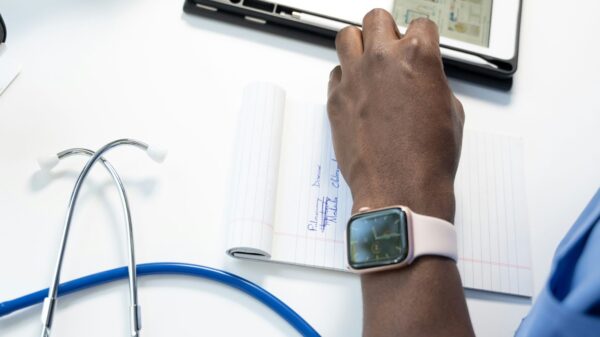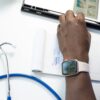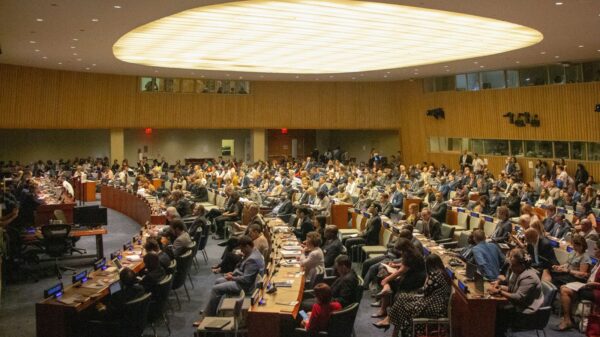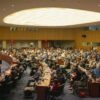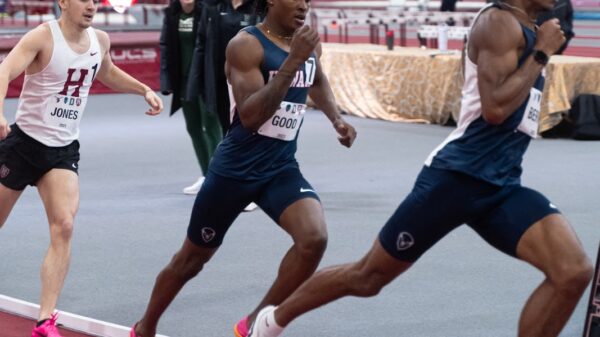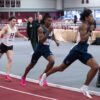Howard University School of Law students made world history being the first student delegation from a Historically Black College and University to present research findings on the United Nations (UN) Sustainable Development Goals (SDGs) and progress of African Americans in the U.S.
The presentation was titled “Acknowledging Black America in the Discussion for Sustainable Development Goals: HBCUs Leading the Way,” and took place during the inaugural UN Permanent Forum for People of African Descent (PFPAD) sessions in Geneva, Switzerland.
The Howard Law Movement Lawyering clinic on Dec. 6 included law students Jarrius Adams, Amma Boateng, Kierra Booker, David Carter, Ashtyn DeWalt, Charkera Ervin, Kayla Gardner, Dominique Hall, Samantha Jeffrey, Precious, Jessa Royer, Talia Thomas and Ashley Washaya. Howard students Harun ‘Shaq’ Al-Hijaz and Jy’Mir Starks presented Thomas and DeWalt’s research findings since they were unable to travel to the UN Human Rights Council.
Established in August 2021, the Forum will act as an advisory body to the UN Human Rights Council and serve as “a consultative mechanism for people of African descent and other relevant stakeholders” and “platform for improving the safety and quality of life and livelihoods of people of African descent.”
The students were led by Justin Hansford, the founder and executive director of the Thurgood Marshall Center for Civil Rights (TMCRC), a Howard University School of Law professor, a Howard University alumnus and the U.S. candidate for PFPAD. In August 2021, Hansford told The Hilltop his students “will assist the PFPAD by working with grassroots organizations in U.S. cities with substantial Black populations to measure where Black Americans are in relation to the Sustainable Development Goals (SDGs).”
The hybrid event took place at Maison des Associations in front of an international audience that included the U.S. Permanent Representative to the UN Human Rights Council, Ambassador Michèle Taylor, as well as the first U.S. Special Representative for Racial Equity and Justice in U.S. history, Desirée Cormier Smith.
“Student-led enterprises like this and other initiatives are key to advancing the ambitious agenda established by world leaders at the UN,” Smith said.
“Your work represents champions and empowers those who face barriers to political, social and economic inclusion. Students do the hard but necessary work of research and reporting in order to demand accountability from elected leaders and public servants,” she continued.
The presentation featured the law students adeptly discussing the measurement of SDG indicators for marginalized populations in 13 U.S. cities, and offering solutions for how public and private leaders and institutions can improve social and economic circumstances.
In remarkable succession, students covered populations in municipalities including Antioch, California (Hall); Baltimore, Maryland (Booker); Chicago, Illinois (Adams); Durham, North Carolina (Washaya); Houston, Texas (DeWalt and Starks); Jackson, Mississippi (Precious); Los Angeles, California (Carter); Miami, Florida (Gardner); New York, (Thomas and Al-Hijaz); Newark, New Jersey (Boateng); Omaha, Nebraska (Royer); Pittsburgh, Pennsylvania (Ervin); and Washington, D.C. (Jeffrey).
Jeffrey, a second-year law student and long-term resident of Washington, D.C. who is exploring telecommunications, corporate litigation and tax with plans of working at a law firm after completing her studies, presented on the District. “My favorite aspect of working on the project was identifying and interviewing the community members during and in preparation of a round table discussion,” Jeffrey said.
“Toward the round table part of my research, I invited community-based organizations, such as mutual aid organizations, grassroots advocacy groups, and nonprofits with grassroots and community-based origins,” she explained.
“These organizations are often excluded from policy development, which heavily relies upon government or university-sponsored and peer-reviewed data. I hoped that my UN work would elevate their stories, ideas, and recommendations,” Jeffrey continued.
Starks, a junior legal communications major from Creston, South Carolina and B.A.-J.D. candidate at Howard University who is studying international human rights law and movement lawyering, served as an alternate for Ashtyn DeWalt. “There was a learning curve because of the depth and range of information. Learning from Ashtyn and the rest of the team made the onboarding process easier, and embodied the spirit of the Permanent Forum, which is Afro descendants coming together to help each other,” Starks said.
“To achieve progress, we must listen to those who are most affected. My team welcomed the approach of assessing and measuring the progress of people of African descent against the Sustainable Development Goals,” Amb. Taylor said. “I was excited to hear from the Howard Movement Lawyering clinic, because I think I learned how I can do my job better.”
The event was moderated by Jadayah Spencer, the executive director of International Youth Leadership Institute, and included remarks from event organizers Dr. Vickie Casanova-Willis of the Office of HBCU Development International Cooperation and Hansford.
“We’re very proud of our clinic and the work our students have done and continue to do. They’re the future leaders of not just Black America, but America and the global community,” Hansford said at the conclusion of the presentation. “We know that human rights begin at home. Earlier today, we discussed the need to ensure human rights standards are enforced in our own countries as well as abroad.”
The event was organized by the Howard University School of Law TMCRC and the Office of HBCU Development International Cooperation in partnership with the International Civil Society Working Group for PFPAD, and International Youth Leadership Institute.
Copy edited by Chanice McClover-Lee








